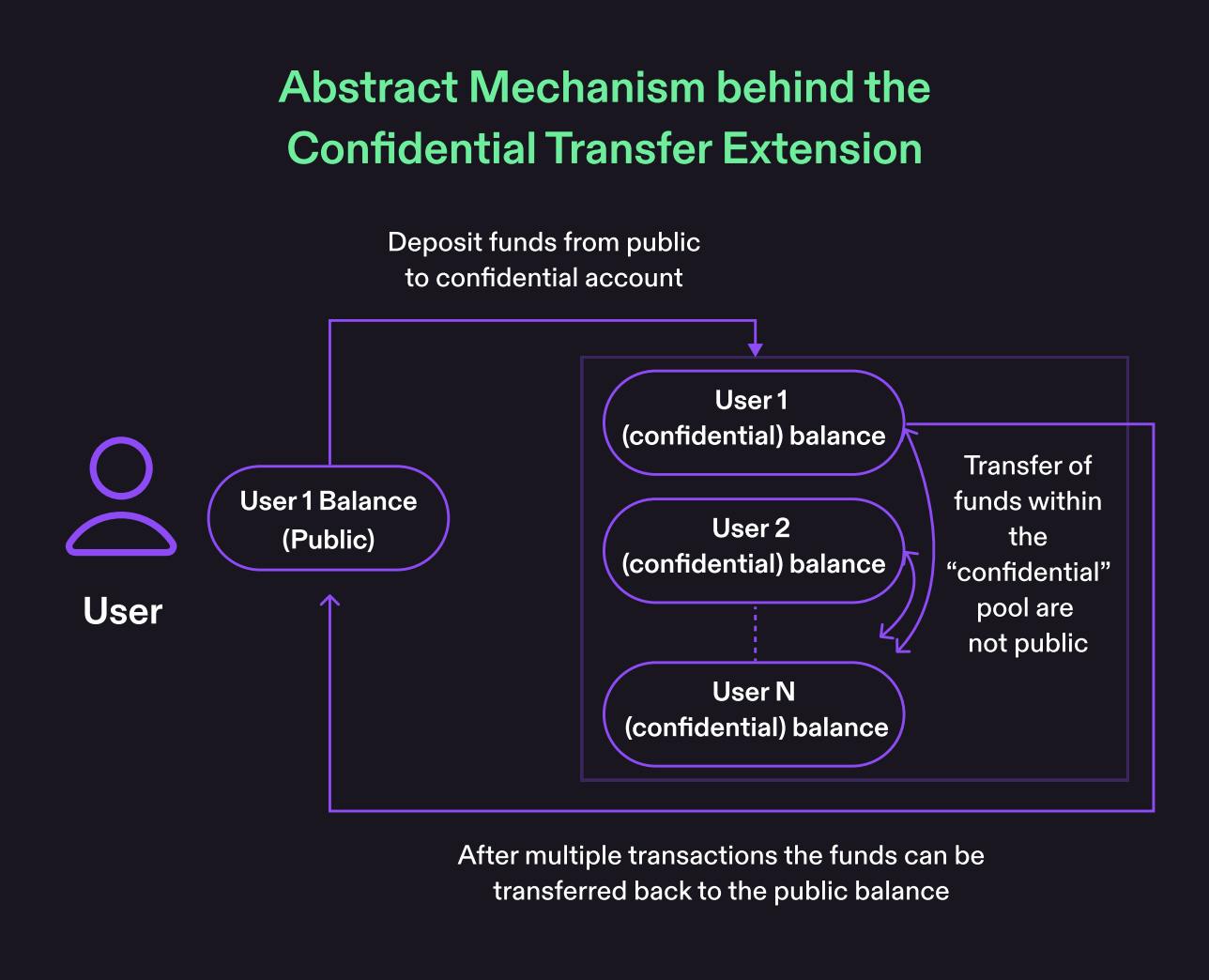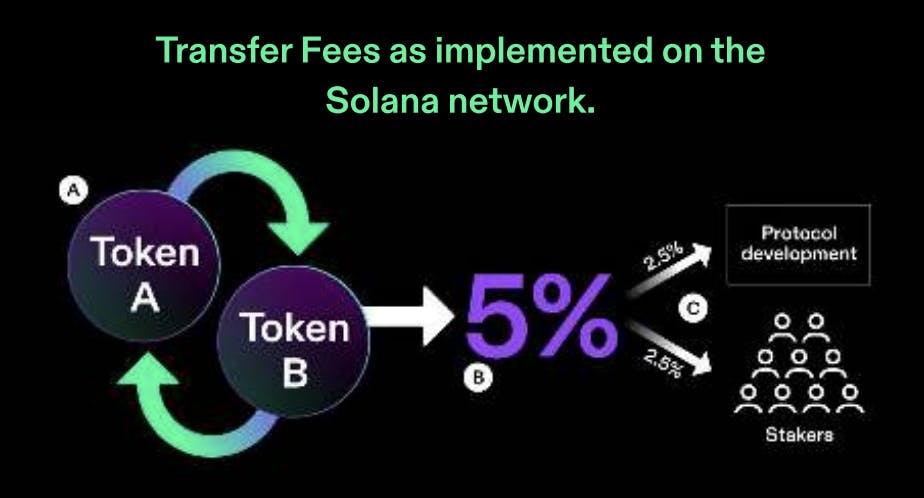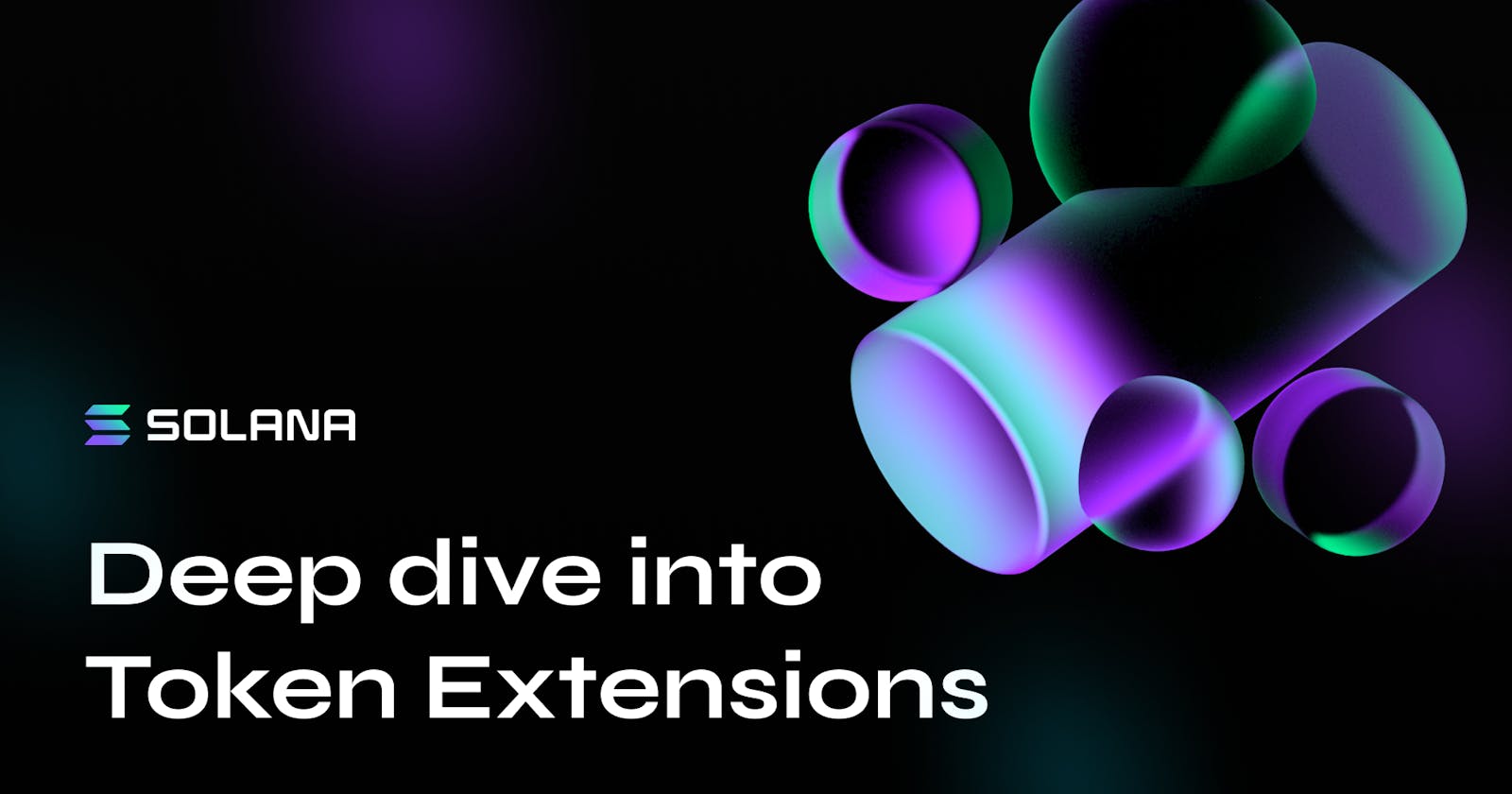If you're familiar with SPL Tokens, you probably know they're providing a structured way to create and manage tokens. But, just like anything, SPL tokens have their limits. Solana's setup requires every program to be part of transactions, which complicates things when dealing with multiple token programs simultaneously. This is where Token Extensions come in handy, solving these challenges and making token management smoother on Solana.
What is Token Extensions ?
A token program on the Solana blockchain, defining a common implementation for fungible and non-fungible tokens. The Token-2022 Program, also known as Token Extensions.
Token Extensions represent a new program on the Solana blockchain, providing a suite of modular add-ons for token issuers. Integrated at the core protocol level of Solana, these extensions cater to both fungible and non-fungible tokens.
Why you should use Token extensions ?
The token extensions, as a significant enhancement to the original SPL Token Program, provide numerous advantages, such as:
Flexibility :
With extensions, you can tweak your tokens to perfectly fit your team's unique blockchain scenario - and it's all happening at the base layer of your stack.
No additional program needed :
Extensions built into the core protocol layer empower you to generate tokens with advanced functionality, eliminating the need for extra libraries. Plus, you don’t need to convince wallets and other protocols to support your token.
Reduced risk, testing cost, development time and need for audits :
Employing thoroughly audited and reliable extensions can minimize attack vectors, thereby safeguarding both protocols and funds.
By incorporating extensions directly into your code, we effectively minimize the risk of defects and human errors, resulting in significant savings on testing time and costs.
Because the extensions are uniform and reusable, the time required to develop application using the extensions is significantly reduced.
By using proven and battle-tested extension, you reduce or even remove the need for expensive audits.
Faster pilots :
Faster testing, faster development, and reduced security risks drastically reduce the time for your team to create blockchain-powered projects.
And since token extensions are a standard, you don’t need to spend time lobbying wallets and other projects to support your custom tokens. All this means faster pilots, faster users feedback and faster path to product/market fit.
Enterprise ready :
For enterprises exploring blockchain token extensions offer the fastest and most reliable path to harnessing the advances of blockchain. Token extensions give you the ability to customize your projects with advanced token behaviour and economics.
Available Token Extensions
Now that we understand why token extensions are a major step forward for blockchain using available token extensions. Extensions can be of two types :
Mint extension :
Mint extension are added on top of the original Solana Token Program and extend the abilities of tokens. Current mint extensions include :
Confidential transfers :
Enabling confidential transfers between two users, while safeguarding the confidentiality of transaction amounts, stands as a pivotal feature that bolsters trust within the blockchain framework. This not only fortifies the security paradigm but also establishes a transparent and accountable repository of data.
For instance, an enterprise compensating its employees in USDC may opt to maintain the confidentiality of salary disbursements. With this extension, an account owner has the capability to configure their account for confidential transfers. Subsequently, they can deposit tokens from their non-confidential holdings into a designated confidential balance. Once this process is concluded, all outgoing transfers from the confidential balance to another account configured for confidential transfers become private. Transfer balances remain visible solely to the source, destination, and an optional third-party auditor.
Confidential transfers, powered by an underlying cryptographic protocol, represent a remarkable advancement in token extensions. Further details on this feature can be explored in-depth here.

Mint close authority :
The Mint close authority feature empowers owners with the ability to seamlessly close mint accounts, facilitating the retrieval of lamports associated with the respective mint account. This functionality adds a layer of control and efficiency to the management of minting processes within the system.
Interest-bearing tokens:
Interest-bearing tokens, facilitated by the mint extension, empower developers to seamlessly generate interest-bearing assets directly on the blockchain. This functionality facilitates the emulation of real-world interest-bearing instruments such as bonds, with configurable interest rates, compounded interest, and other relevant parameters. The extension provides teams with the capability to establish an interest rate for their token program and retrieve the balance of tokens, inclusive of interest, at any given moment.
This is only a cosmetic feature. This means that the amount returned is purely for display purposes; no additional tokens are actually minted.
Permanent delegate :
This feature enables the designation of a lasting account delegate for a mint, affording the delegate unrestricted privileges over any account associated with that mint. This entails the authority to execute actions such as burning or transferring any quantity of tokens.
Transfer fees :
The Transfer Fees Extension empowers token minters to impose fees on each token transfer seamlessly. In contrast to the previous token model, where projects seeking to levy fees had to freeze accounts, engage third parties for fee collection, and subsequently unfreeze accounts, the new extensions eliminate these cumbersome steps.
With this enhancement, projects can effortlessly institute automated fee transfers, facilitating streamlined processes for generating royalty payments, platform fees, revenue sharing, and other financial transactions.

Non-transferable tokens:
Sometimes, teams may prefer to restrict the trading, exchanging, or transferring of their tokens. The non-transferable extension addresses this need by generating non-fungible tokens, minted exclusively for a designated address and permanently retained by the original recipient.
Examples of such tokens encompass representations of personal credentials like degrees, individual achievements, badges, trophies, and points. Soulbound tokens also find application as on-chain loyalty cards, forming an enduring connection with the user, or serving as verifiable proof of purchase.
Transfer hook :
The Transfer Hook extension represents a pivotal element in blockchain functionality, triggering a customized logic segment upon the transfer of a token. Implementation is streamlined, requiring developers to craft and deploy a program adhering to the prescribed interface, thereby executing their designated business logic.
Subsequently, developers configure their tokens to integrate seamlessly with the newly developed program. For instance, a game creator might opt to garner a percentage from each transaction, exemplifying the adaptability and utility of this extension.
Metadata and Metadata pointer :
The introduction of the metadata extension enables the seamless integration of modular metadata directly into tokens. This empowers developers with the flexibility to add, update, or remove custom fields as per the project's unique specifications.
The adaptable nature of metadata ensures a tailored approach to meet specific requirements. Notably, this metadata remains inherent to tokens, ensuring portability across all applications for optimal interoperability.
Furthermore, the metadata pointer functionality allows token creators to specify an address that serves as the official metadata descriptor for the token. This designation can even be assigned to the mint itself, providing a straightforward and efficient means of managing and referencing essential token information.
Group and Group pointer :
Tokens can now be associated with a designated group, which can be configured with specific parameters such as maximum size, initial size, and update authority.
Group pointer allows a token creator to designate a group account that describes the mint.
For detailed insights, you may refer to the documentation available here.
Member and Member pointer :
This pertains to the configurations associated with a group member, encompassing details like the group address and the unique identifier assigned to a member.
The Member Pointer functionality empowers the token creator to specifically designate a member account responsible for delineating the minting process.
Account extension :
Account extensions are seamlessly integrated with Solana accounts, enhancing and expanding their functionality. These extensions specifically focus on augmenting account-related features.
Memo required on transfer :
A mandatory memo feature accompanies every token transfer, necessitating the inclusion of a message. This functionality serves multifaceted purposes, including adherence to regulatory compliance, facilitation of reporting obligations, and the establishment of more robust audit trails.
Immutable owner :
In traditional token programs, the token account owner possesses special rights, enabling actions such as minting new tokens, temporarily halting token transfers, program upgrades, and emergency interventions.
However, a potential vulnerability arises when token account owners reassign ownership to another address. While this feature can be advantageous, it introduces a security risk. If an account owner transfers ownership without proper notification, applications may continue to operate under the assumption that the account is still under the original ownership.
The Immutable Owner extension addresses this concern by creating token accounts impervious to ownership transfers. With this extension, token account ownership becomes immutable, ensuring verified integrity and heightened security. Implementation of this extension effectively mitigates the risk of unintended account misappropriation.
Default account state :
This feature entails the automatic freezing of all newly created token accounts, requiring users to engage with the project to unfreeze their accounts and access the associated tokens.
CPI guard:
CPI Guard is a pivotal feature that imposes restrictions on how external programs can engage with your token. This is achieved by delineating and prohibiting specific actions within cross-program invocations. This ensures a secure and controlled environment for your token interactions.
Reallocate:
Certain extensions can be activated post-account creation. The Reallocate feature empowers owners facing this scenario to seamlessly adjust their token accounts, thereby optimizing space for additional extensions.
Conclusion
Token Extensions on the Solana blockchain represent a transformative leap for token issuers. These modular add-ons, seamlessly integrated at the core protocol level, provide unparalleled flexibility, reducing development time and testing costs while enhancing security.
Mint Extensions offer a versatile toolkit for developers, addressing privacy, fees, interest-bearing assets, non-fungible tokens, and more. Simultaneously, Account Extensions optimize Solana accounts with features like Memo Required on Transfer, Immutable Owner, Default Account State, CPI Guard, and Reallocate.
The standardized nature of Token Extensions expedites project timelines, eliminating the need for extensive lobbying for support. Enterprise-ready and designed for customization, Token Extensions signify a rapid and reliable path for enterprises exploring blockchain technology.
In essence, Token Extensions signify a paradigm shift, ushering in efficiency, customization, and security for token issuers and developers on the Solana blockchain, marking a significant milestone in blockchain innovation. Explore more about Token Extensions here.

